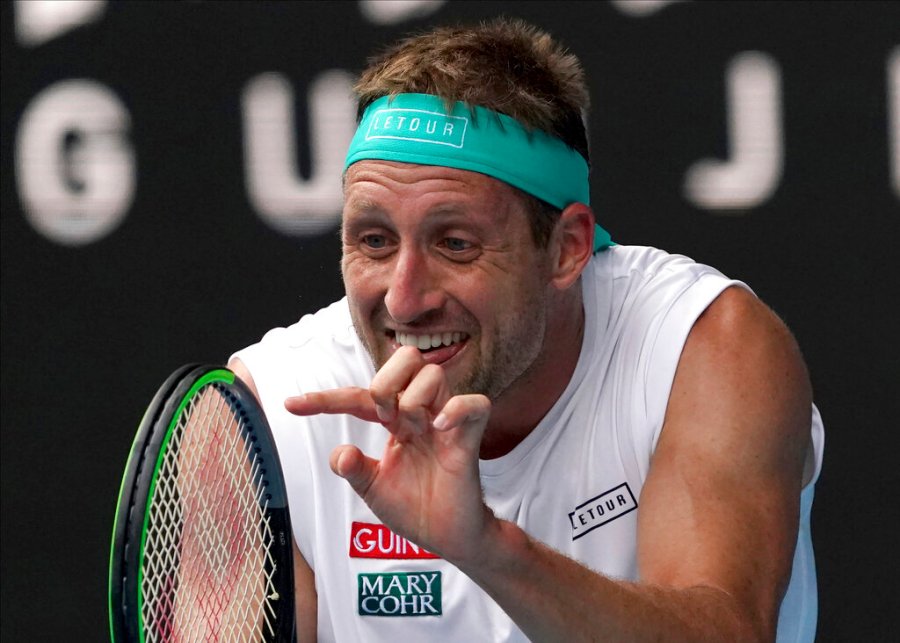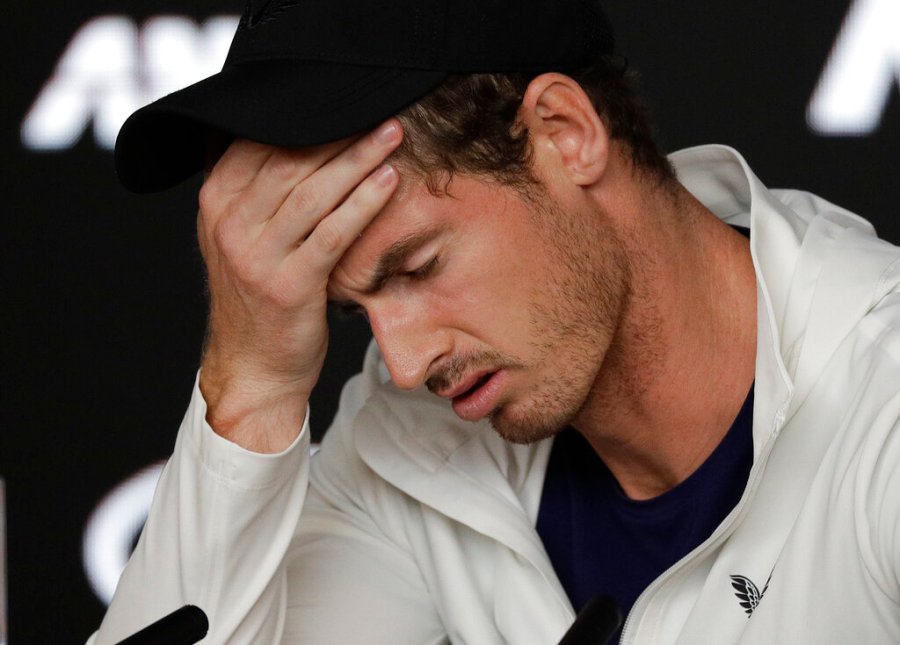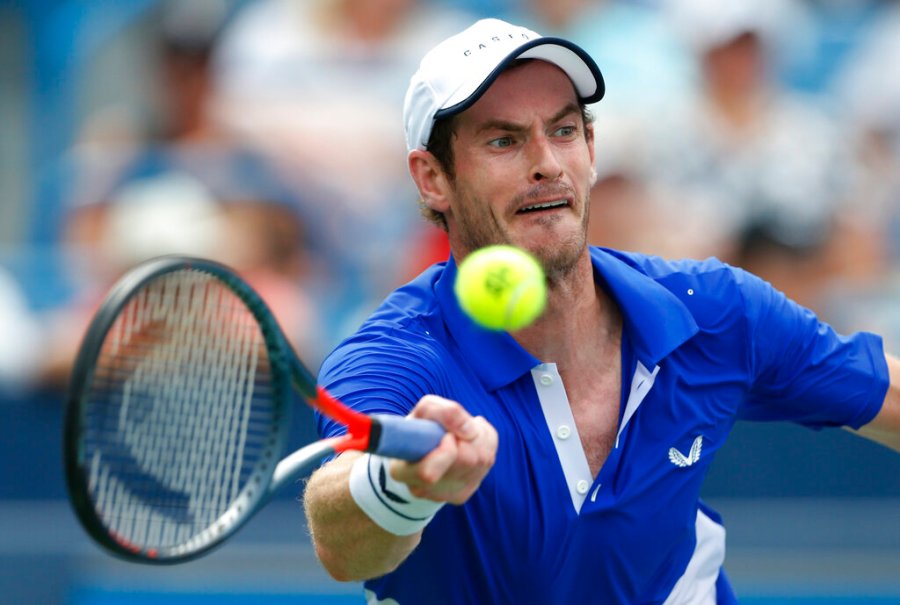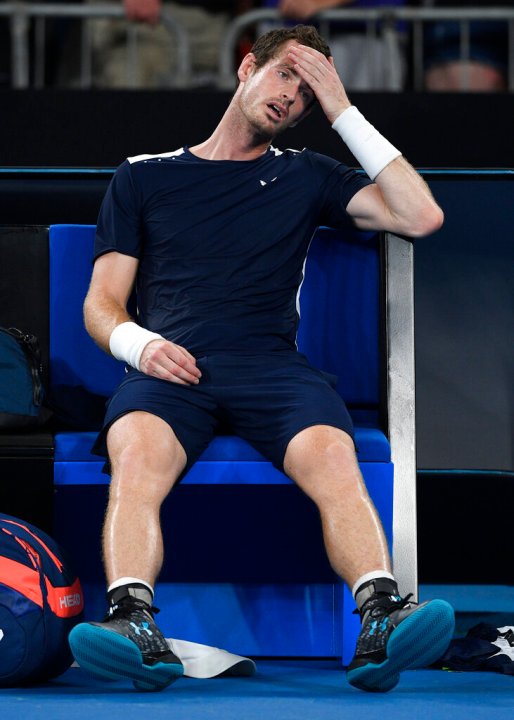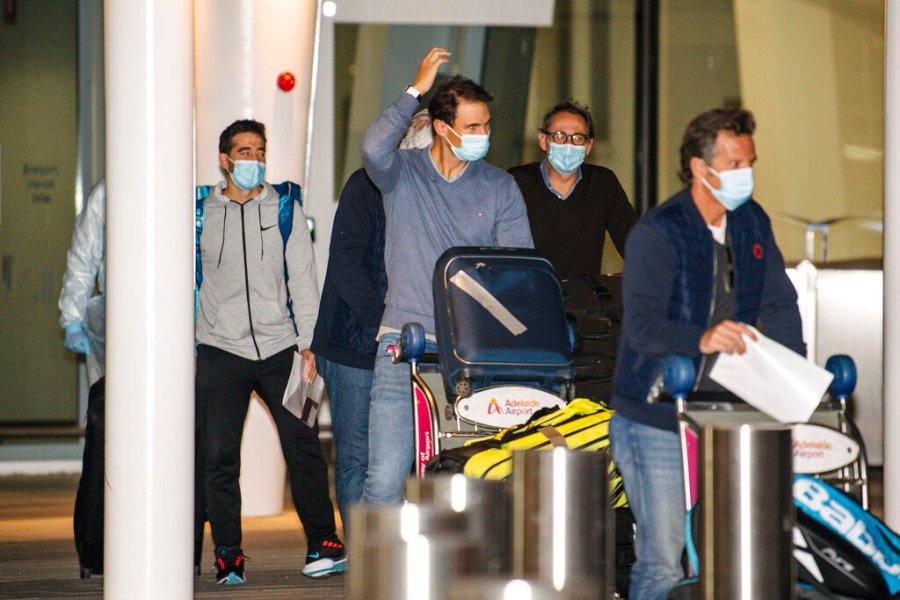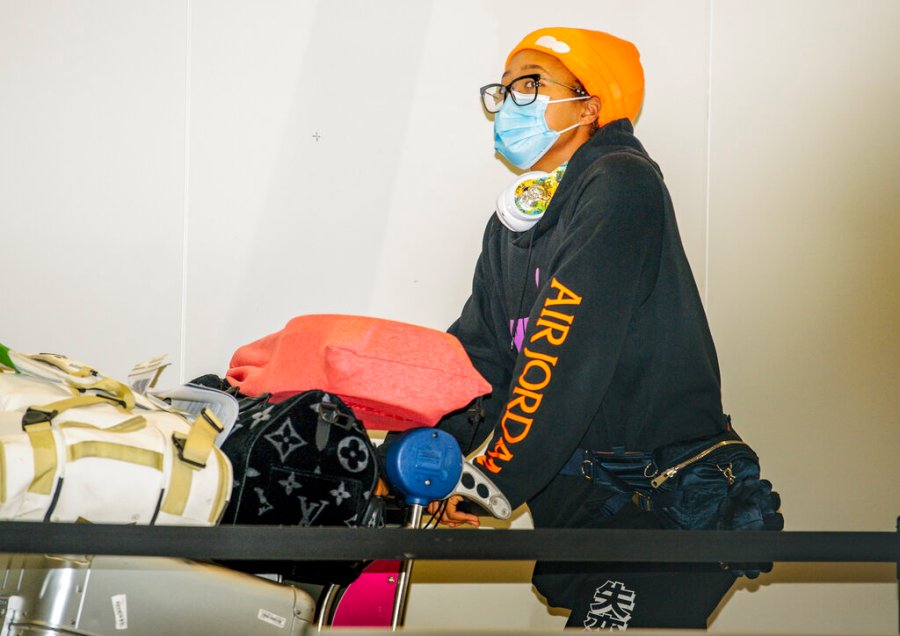MELBOURNE (AP) — Grand Slam champions are among the 47 players in hard lockdown after four positive tests for COVID-19 emerged from two of the charter flights bringing players, staff, officials and media to Australia for the first tennis major of the season.
Some players were angry at being classified as close contacts merely for being on board those flights with people who later tested positive and, therefore, forced into a harsher quarantine than the broader group of players who’ll be allowed out of their rooms to practice for up to five hours per day.
But local health authorities have said all players were warned of the risks in advance. And any players considering bending the rules have been warned. Breach quarantine regulations and there’s the prospect of heavy fines or being moved to a more secure quarantine complex with police stationed at their doors.
Three cases were announced Saturday and Victoria state’s COVID-19 quarantine commissioner Emma Cassar told a news conference on Sunday that there’d been a fourth positive test involving a person flying in for the Australian Open. So far, none has involved a player.
Three cases emerged from the flight from Los Angeles to Melbourne, officials said, including a member of the air crew, a coach and the latest being a member of the TV broadcasting team. The other case was a coach who took the charter flight from Abu Dhabi to Melbourne.
All four had tested negative before boarding their flights to Australia. All four have now been transferred to a health hotel.
Sylvain Bruneau, who coaches 2019 U.S. Open champion Bianca Andreescu, posted on social media to say he was on the flight from Abu Dhabi and had tested positive.
Two-time Open champion Victoria Azarenka and the 2014 U.S. Open runner-up Kei Nishikori were reported to be on the flight from Los Angeles. All passengers from both of those flights are in hard lockdown.
Cassar, who is also in charge of the state’s prisons, said there’d been cases of people “testing” the quarantine procedures, triggering a warning and a conversation with the state’s police, but no attempts to escape quarantine.
“There’ll be zero tolerance for that behavior,” Cassar said. “This is designed to make people safe. We make no apologies for that.”
Several players in quarantine, including Sorana Cirstea of Romania, Belinda Bencic of Switzerland and Yulia Putintseva of Kazakhstan complained in social media posts that the rules seemed to have changed between what they saw before traveling to Australia and what was being imposed in Melbourne.
Cirstea posted on Twitter: “If they would have told us this rule before I would not play Australia … I would have stayed home. They told us we would fly at 20% capacity, in sections and we would be a close contact ONLY if my team or cohort tests positive.”
But government officials have rejected those claims.
“There’s no other way you can consider this. If you’re on a plane 16-24 hours, with air that circulates throughout the plane, you are a close contact,” Cassar said. “This was made very clear and nothing has changed.”
Tennis Australia confirmed there were 24 players on the flight from Los Angeles and 23 on the flight from Abu Dhabi. Those were among 17 charter flights from seven international destinations bringing up to 1,200 players, coaches, staff and officials into Australia for the tournament.
Australian Open tournament director Craig Tiley told Australia’s Nine Network that organizers and players were forewarned there’d be a “significant risk” of restrictions being imposed on players if there were positive COVID-19 cases.
“We did make it very clear in the beginning,” Tiley said. “Now we have to manage an environment over the next 14 days for those who won’t be able to practice.
“It’s a tough situation. We’ve got to do whatever we can to make it as fair as possible for those player that are in lockdown.”
British player Heather Watson said on Twitter that she and others who arrived from Abu Dhabi “are NOT allowed out (of) our rooms.” She posted the notification that she and others who were on the flight received informing them of the quarantine.
“We are aware of the major impact this has on your preparation for the Australian summer,” the notification said, pledging “to do everything we can to mitigate this impact.”
Being unable to leave their room would mean the only workouts they’d be able to have would be on an exercise equipment left in the rooms of all of the players.
Other players will be allowed to train under strict conditions and with supervision for up to five hours a day, although those practice sessions in Melbourne had been delayed while health authorities waited to receive all the coronavirus tests.
Five-time Australian Open finalist Andy Murray and American Madison Keys haven’t traveled to Australia after testing positive in mandatory pre-flight checks.
Tiley said there were no plans to delay the Australian Open any further — it’s already starting three weeks later than usual — although organizers were reviewing the schedule for the warmup tournaments starting Feb. 1 to find ways to make it easier for those players in strict quarantine to prepare. The tournament is scheduled to begin Feb. 8.
Tickets are on sale for the tournament, although the crowd capacity at Melbourne Park will be limited.
Australia’s international borders are basically closed to travelers, although there are exemptions in special circumstances. Each of Australia’s states and territories has its own border and quarantine rules, and those can change on very short notice.
Victoria state, which has as its capital Melbourne, accounted for 810 of Australia’s 909 deaths from COVID-19, most of those during a deadly second wave three months ago which resulted in curfews and lockdowns for the city.
Novak Djokovic, Rafael Nadal and Serena Williams are among a group of players involved in an exhibition event in Adelaide, South Australia state, on Jan. 29. Those players flew straight to Adelaide to begin their hotel quarantine period. So far, there’s been no COVID-19 cases reported from the quarantine in Adelaide.
___ AP Sports Writer Dennis Passa contributed from Brisbane, Australia.

